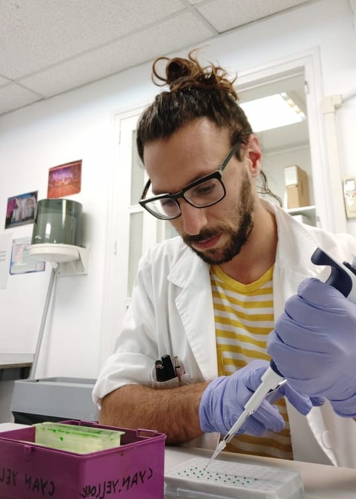The application of new molecular techniques for the study of parasitic diseases in penguins.
Bruno Fusaro is a Doctoral Candidate at the Instituto Antártico Argentino in Argentina. His fellowship was hosted by the Museo Nacional de Ciencias Naturales in Spain, where he worked with Dr Andres Barbosa from May – November 2019.
His project was entitled “Molecular and epidemiological diagnosis of parasitic diseases in Pygoscelid penguins in the context of global climate change.”
The Antarctic Peninsula is currently one of the areas most affected by climate change and the study of parasitic diversity, its dynamics and possible consequences on penguins are fundamental to understanding their health.
The project was focused on the application of new molecular techniques for the study of parasitic diseases in penguins.
Four publications are anticipated as outcomes of this SCAR Fellowship. They involve studies of health status in Antarctic penguins, parasitic diversity, microbiotas, gene sequencing of different helminth species and different DNA extraction methodologies.
The development work carried out for this project could also serve as a model for studies in other bird species and localities.
SCAR fellowships are known for the lasting links they create between researchers and this one is no exception. Bruno is still in touch with Dr Barbosa and has been made a scientific collaborator in his new project. They would like to continue their research together and Bruno hopes to visit the Museo Nacional de Ciencias Naturales again in future.
The full report is available here and on the SCAR Fellows webpage together with the full list of previous SCAR Fellows and available reports.
The SCAR Early-Career Fellowship Programme is designed to encourage the active involvement of early career scientists and engineers in Antarctic scientific research, and to build new connections and further strengthen international capacity and cooperation in Antarctic research. The work must be carried out in a research group of a SCAR member country different from that of the applicant’s origin and current residence.

